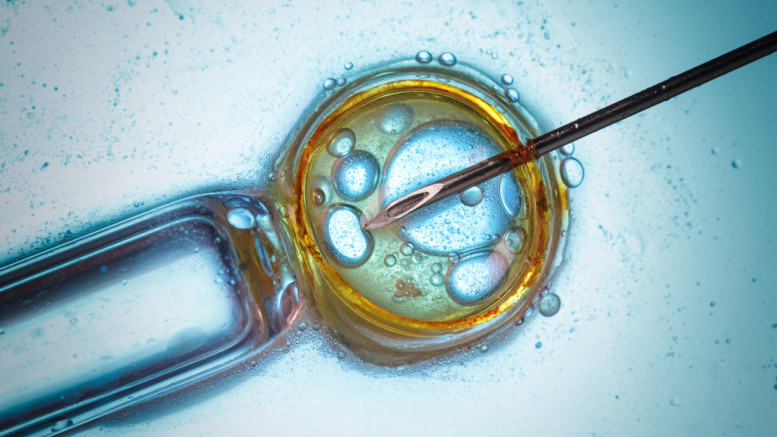Infertility is a sensitive and often life-changing diagnosis, affecting millions of individuals and couples worldwide. This article explores how in vitro fertilization (IVF), including ivf with donor oocytes, helps overcome infertility by offering medically established and ethically monitored solutions. Readers will understand who IVF is intended for, how the process works, and what to expect medically and emotionally.
Understanding infertility and its medical context
Infertility is typically defined as the inability to conceive after 12 months of regular, unprotected intercourse. The World Health Organization (WHO) recognizes it as a disease of the reproductive system and estimates that it affects about 17.5% of the adult population globally at some point in their lives.
Causes of infertility can be diverse. For women, ovulation disorders, blocked fallopian tubes, or a decline in ovarian reserve are common. Male infertility may involve issues with sperm quality or function. In many cases, infertility stems from combined factors or remains unexplained.
What is IVF and when is it used?
In vitro fertilization is an advanced reproductive technique in which oocytes are fertilized with sperm outside the body. The resulting embryo is transferred into the uterus to initiate pregnancy.
IVF is usually recommended when less complex treatments, such as timed intercourse or intrauterine insemination, are not effective. It also becomes necessary in cases of tubal blockage, severe male factor infertility, genetic concerns, or age-related decline in egg quality. In some situations, IVF is the only viable path to parenthood, particularly when donor oocytes are needed.
The IVF process explained
IVF involves multiple stages. First, hormonal medications stimulate the ovaries to produce multiple eggs. The eggs are retrieved under ultrasound guidance and fertilized in the lab using partner or donor sperm. Embryos are then cultured for several days. One or more embryos are selected for transfer into the uterus. A pregnancy test is performed about two weeks later to confirm implantation.
Depending on the individual case, clinics may use frozen or fresh embryos and tailor protocols for best outcomes. Additional procedures such as preimplantation genetic testing (PGT) may be included when medically indicated.
IVF with donor oocytes: when and why it’s needed
Donor oocytes are recommended when a woman is unable to use her own eggs due to medical or age-related reasons. This may be due to premature ovarian failure, poor response to stimulation, previous failed IVF attempts, or the risk of passing on genetic conditions.
In these cases, using donor eggs increases the chances of successful pregnancy. Donors are usually young women with proven fertility and are screened for infectious diseases, genetic risks, and overall health.
The recipient undergoes hormonal preparation to ensure the uterus is receptive. Fertilized donor eggs form embryos that are then transferred just as in a standard IVF cycle.
Success rates and influencing factors
Success rates of IVF vary depending on age, underlying medical conditions, and whether donor oocytes are used. According to the CDC, using donor eggs significantly improves the likelihood of pregnancy, especially for women over the age of 40.
| Treatment method | Average live birth rate per cycle |
|---|---|
| IVF with patient’s own eggs | Decreases with age |
| IVF with donor oocytes | Higher and age-independent |
This difference is attributed to the fact that donor eggs are typically from women in their twenties, when egg quality is at its peak.
Legal and ethical frameworks
IVF treatments are regulated under national and international laws to ensure safety and ethical standards. Consent from all parties is mandatory, and donor identity policies vary by country—ranging from full anonymity to open donation.
Clinics operating within the European Union must comply with the European Tissue and Cells Directive, while other countries follow their own reproductive health regulations. The use of donor gametes is subject to specific rules on screening, traceability, and storage, depending on the jurisdiction.
Donor egg and sperm bank – IVMEDOVO working closely with fertility clinics across Europe and Ukraine. All donors in their program meet stringent criteria for medical and psychological health, and are selected in accordance with ethical standards. The agency facilitates donor-recipient matching and supports communication between intended parents and licensed reproductive centers.
Risks, challenges, and psychological aspects
Although IVF is considered safe, it is not without risks. Medical complications like ovarian hyperstimulation syndrome (OHSS), multiple pregnancies, and procedural discomfort may occur. More often, patients face emotional and psychological stress throughout the process, including anxiety over treatment outcomes, financial pressure, and the emotional complexity of using donor gametes.
Counseling is often recommended, especially when donor oocytes are involved. Many individuals and couples benefit from psychological support to discuss identity, disclosure to future children, and relational dynamics.
What to expect from the donor egg experience
IVF with donor oocytes can be a positive solution for patients who otherwise face very low chances of conception. However, it also involves logistical and emotional decisions: choosing a donor, aligning treatment timing with the clinic, and preparing for the idea of raising a child not genetically related to one or both parents.
A transparent process, good clinical support, and trust in the medical team are essential. Agencies like IVMEDOVO ensure that the donor selection process is not only medical, but also respectful of the personal values and preferences of the intended parents.
